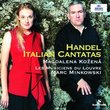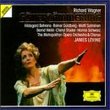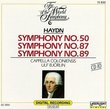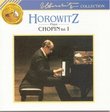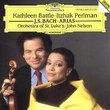| All Artists: Richard Wagner, Georg Solti, George London, Kurt Böhme, Wiener Philharmoniker, Waldemar Kmentt, Claire Watson, Gustav Neidlinger, Hetty Plumacher, Jean Madeira, Kirsten Flagstad, Oda Balsborg, Paul Kuen, Set Svanholm, Walter Kreppel, Ira Malaniuk, Eberhard Wächter Title: Das Rheingold Members Wishing: 0 Total Copies: 0 Label: Polygram Records Release Date: 10/25/1990 Album Type: Box set Genre: Classical Style: Opera & Classical Vocal Number of Discs: 3 SwapaCD Credits: 3 Other Editions: Das Rheingold UPC: 028941410122 |
Search - Richard Wagner, Georg Solti, George London :: Das Rheingold
 | Richard Wagner, Georg Solti, George London Das Rheingold Genre: Classical
|
CD DetailsSimilarly Requested CDs |
CD ReviewsSimply the best J. H. Gaulard | London United Kingdom | 02/01/2007 (5 out of 5 stars) "This is possibly the best Rheingold ever recorded and I will even go as far as to say that it is quite possibly one of the best Wagner operas ever recorded in a studio. The reason? First of all the cast, simply unmatched and unmatchable. George London was an amazing Wotan, at par with Schorr, Hotter, James Morris and John Tomlinson. He didn't have the career he should have had due to health problems but hopefully his Rheingold Wotan is available here. If you want to hear him in Walkure, he partners Birgit Nilsson in a Decca recording conducted by Erich Leinsdorf. To hear him as the Wanderer you will need to dig for a 1962 MET broadcast, also conducted by Leinsdorf. London's Wotan is unsurpassed. The American singer offers a brilliant, hedonistic, extremely noble Wotan - very similar in character to the Don Giovanni this singer was portraying so well. Listen to the "heher, herrlicher bau" in scene 2 (CD I, track 7), you will understand what I mean. The rest of the cast is generally amazing, in particular all the gods. We shall start with Loge and Fricka portrayed by Set Svanholm and Kirsten Flagstad respectively. Former Tristan and Siegfried for him, Isolde and Brunnhilde for her, they are legendary singers at the twilight of their careers passing the baton to a younger generation. The voices remain spectacular. The Donner of Eberhard Waechter is very generous and ample, and so is the Froh of Waldemar Kmentt and the Freia of Claire Watson.
The second best bit of casting after London though is Gustav Neidlinger in his signature piece of Alberich. What can we say that hasn't be said before? He is caught in stereo close to the peak of his career, his curse remains as frightening as ever. Paul Kuen also portrayed his signature role, Mime. His exchange with Neidlinger is legendary. In the pit, the Wiener Philharmoniker find incredible colours, were it for the opening or the coda, the arrival of the giants, the descent in Nibelheim, all of it is perfectly balanced and dynamic. This has a lot to do, one can imagine, with the fantastic conducting of Georg Solti, as often privileging the narrative and the drama. Some people think his conducting is not contemplative enough, I will just say that the reason why people still listen to this Rheingold after fifty years is because at the end of the day, this studio recording always "feel" like the theatre, and this is in my view, a great tribute to Solti's dynamic, enthusiastic and fresh approach to the score. An incredible Rheingold. " |

 Track Listings (12) - Disc #1
Track Listings (12) - Disc #1
